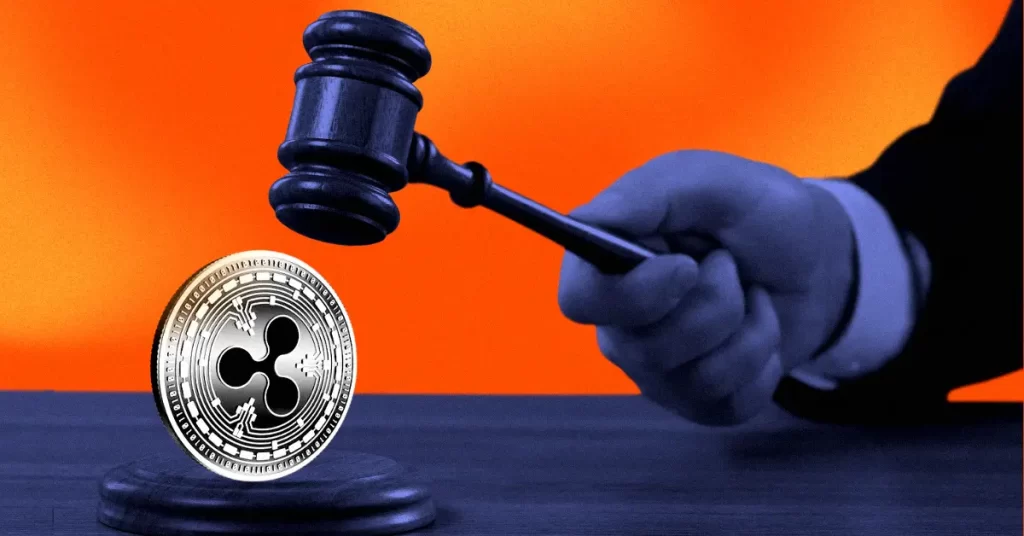Latest Ripple vs. SEC Update: Bill Morgan Slams SEC’s XRP Claims in Appeals Battle

The post Latest Ripple vs. SEC Update: Bill Morgan Slams SEC’s XRP Claims in Appeals Battle appeared first on Coinpedia Fintech News
XRP, the seventh-largest cryptocurrency by market capitalization, is making waves in the crypto market. In a dramatic 24-hour surge, trading volumes have skyrocketed by over 40%. This unexpected spike comes on the heels of new developments in the high-stakes legal battle between Ripple and the SEC.
Is this (finally) the beginning of a new chapter for XRP?
SEC Update: A Turning Point?Just last week, the SEC announced that it would submit its principal brief in the ongoing appeals process by January 15, 2025. While this is happening ongoing discussions are happening on X by the legal community on XRP status here’s what the lawyers have to say on the whole speculations.
This is incoherent rambling. Any person commenting on this issue is going to run into a problem if they confuse the asset itself with a transaction in which it is sold or offered for sale. There was nothing erroneous about the judge looking at the asset itself in isolation from a… https://t.co/EDY1kh6AGs
— bill morgan (@Belisarius2020) November 1, 2024 XRP’s Classification Horror ContinuesXRP is currently facing the last stages of a legal battle regarding whether it should be classified as a security. Lawyer Bill Morgan, along with social media commentators Joe Sho and James Farrell, has weighed in on this issue. Morgan, known for his critical stance on the SEC’s arguments, disputes Sho’s claim that the Appeals Court may label XRP as a security.
Sho argues that a “de novo” review by the Appeals Court could overlook previous findings and interpret XRP as an investment contract. This view aligns with other crypto cases, including Judge Rakoff’s recent ruling in the Terra case.
either way, de novo means that the Appeals Court is not bound by the district holdings, and therefore can explicitly or implicitly hold that XRP itself is a security. (just like judge Rakoff did in Terra case, "There is no genuine dispute that UST, LUNA, wLUNA, and MIR are…
— joe sho (@joeshoeth) November 2, 2024 The Embodiment Theory ExplainedMorgan’s analysis provides a more nuanced perspective than the random theories often found in the crypto space. He highlights the “embodiment theory,” which suggests that XRP should be viewed as an asset rather than a security. Morgan points out that Judge Torres’s ruling—determining that XRP itself is not inherently an investment contract—was appropriate because it distinguished between the asset and the context of the transaction.
He believes this approach is more logical, even if it diverges from current crypto case law or the SEC’s position. According to Morgan, the SEC continues to argue that XRP’s perceived lack of inherent value means any transaction involving it counts as an investment contract, especially concerning Ripple and possibly broader secondary markets.
The Implications of a De Novo ReviewAdding another layer of complexity, James Farrell notes that a “de novo” review allows the Appeals Court to adopt the “embodiment theory” or completely reinterpret XRP’s classification. This means the court could follow Judge Rakoff’s lead from the Terra case, where assets like UST and LUNA were seen as securities based on their use in investment contexts, possibly challenging the initial district ruling on XRP.
While Morgan acknowledges the Appeals Court’s freedom to reassess the situation, he warns that any move to consider XRP itself as a security would misinterpret the judge’s focus on the difference between asset and transaction.
The outcome of this debate could set a major precedent for XRP and other cryptocurrencies, as it questions whether digital assets are inherently securities or only become such within specific transaction contexts.
The future of XRP and the broader crypto industry hangs in the balance. At this point, are we just moving in circles?
